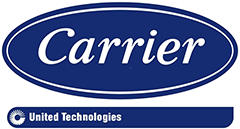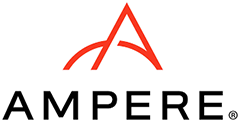Dynamics 365 Supply Chain ERP (SCM) is a powerful enterprise resource planning (ERP) solution that can be customized to meet the specific needs of any organization. Customization can be used to improve the usability, functionality, and reporting capabilities of SCM, making it a more valuable asset for your business.
Configuration allows you to change the settings and behavior of SCM to match your specific business requirements. For example, you can configure the system to use your company's fiscal calendar, currency, and organization hierarchy. You can also configure sales and purchase settings, such as pricing, discounts, payment terms, and vendor management.

Benefits of Customization
There are many benefits to customizing Dynamics 365 SCM. Some of the key benefits include:
- Improved usability: Customization can make SCM easier to use for your employees, reducing the time they spend learning the system and increasing their productivity.
- Enhanced functionality: Customization can add new features and capabilities to SCM, making it a more valuable asset for your business.
- Improved reporting: Customization can make it easier to generate reports that provide valuable insights into your business operations.
If you are considering customizing Dynamics 365 SCM, there are a few things you should keep in mind. First, it is important to carefully plan your customizations to ensure that they meet your specific needs. Second, you should consider using a qualified Microsoft partner to help you with your customizations. A qualified partner can help you choose the right customizations for your business and implement them correctly.
Services
System Configuration
Workflow Design and Automation
Data Integration
Report and Dashboard Development
User Interface (UI) Customization
Custom Development
Mobile App Development
Training and Support
Upgrades and Enhancements
Why Choose atQor for Dynamics 365 Supply Chain ERP Customization?
atQor is a Microsoft Gold Partner and a leading provider of Dynamics 365 Supply Chain ERP customization services. We have a team of experienced professionals with deep expertise in Dynamics 365 Supply Chain ERP and a proven track record of success in delivering customized solutions to our clients.
Here are some of the reasons why you should choose atQor for your Dynamics 365 Supply Chain ERP customization needs:
- Expertise and experience: Our team of experienced professionals has a deep understanding of Dynamics 365 Supply Chain ERP and the unique challenges faced by businesses in various industries. We have successfully implemented and customized Dynamics 365 Supply Chain ERP solutions for a wide range of clients, including Fortune 500 companies.
- Comprehensive customization capabilities: We offer comprehensive customization capabilities to meet your specific business needs. We can customize Dynamics 365 Supply Chain ERP to align with your specific business processes, industry standards, and regulatory requirements. We can also modify workflows, create custom reports, integrate third-party systems, and develop specialized functionalities.
- End-to-end services: We provide end-to-end services for Dynamics 365 Supply Chain ERP customization. From initial consultation and requirement gathering to implementation, testing, and ongoing support, we offer a complete range of services to ensure a smooth and successful customization process.
- Seamless integration: We understand the importance of integrating Dynamics 365 Supply Chain ERP with your existing systems and processes. We have expertise in integrating ERP systems with other Microsoft solutions, such as Office 365, Power Platform, and Azure. This seamless integration ensures data consistency, eliminates manual data entry, and enables efficient information flow across your organization.
- Commitment to customer success: We are committed to your success. We work closely with you throughout the customization process, ensuring effective communication, timely delivery, and transparent project management. Our customer-centric approach focuses on understanding your business goals and delivering solutions that drive tangible business outcomes, such as improved operational efficiency, enhanced visibility, and better decision-making.
- Microsoft Partnership: As a Microsoft Gold Partner, we have access to the latest tools, resources, and support from Microsoft. This partnership ensures that we stay updated with the latest enhancements and features of Dynamics 365 Supply Chain ERP, enabling us to provide you with the most advanced and effective customizations.
In summary, choosing atQor for Dynamics 365 Supply Chain ERP customization means benefiting from our expertise, comprehensive customization capabilities, end-to-end services, seamless integration, commitment to customer success, and strong Microsoft partnership. With atQor as your customization partner, you can optimize your ERP solution to meet your specific business needs and gain a competitive edge in your industry.
Contact us today to learn more about how we can help you with your Dynamics 365 Supply Chain ERP customization needs.
User Interface (UI) Customization
It's important to note that UI customization in Dynamics 365 Supply Chain Management typically requires a certain level of technical expertise, such as knowledge of the X++ programming language or Power Apps development. Depending on the complexity of your customization requirements, you may need the assistance of a Dynamics 365 consultant or developer to implement the desired changes effectively.
Personalization
Users can personalize their own workspace by rearranging and configuring the layout of forms, fields, and grids according to their preferences. This allows individuals to optimize their workflow and access the most relevant information quickly.
Form Customization
The platform provides tools to modify existing forms or create new ones. You can add, remove, or rearrange fields, change field properties, and define field validation rules to align with your business processes. Additionally, you can incorporate custom controls, such as drop-down lists or date pickers, to enhance data entry and usability.
Business Process Flows
Dynamics 365 Supply Chain Management allows you to create custom business process flows that guide users through specific workflows or procedures. You can define stages, steps, and required actions, making it easier for users to follow standardized processes and ensure consistency across the organization.
Workspaces and Dashboards
You can create personalized workspaces and dashboards tailored to different roles or job functions within your organization. These workspaces provide a consolidated view of relevant information, key performance indicators (KPIs), charts, and reports, enabling users to monitor and analyze data in a more efficient and intuitive way.
Role-based Security
Dynamics 365 Supply Chain Management offers role-based security, allowing you to define access permissions and privileges based on user roles and responsibilities. This ensures that users only see and interact with the UI elements and data that are relevant to their job function, maintaining data integrity and security.
Integration with Power Apps and Power Automate
Dynamics 365 Supply Chain Management integrates with the Power Platform, which includes Power Apps and Power Automate (previously known as Microsoft Flow). This integration enables you to extend and customize the UI by building custom apps, automating workflows, and integrating with other systems and services.
Reports and Analytics:
Dynamics 365 Supply Chain ERP offers a wide range of reports and analytics capabilities that can be customized to meet the specific needs of your business. Here are some of the ways you can customize reports and analytics in Dynamics 365 Supply Chain ERP:
Our Clients
Workflow Automation:
The first step is to identify the specific workflows and processes you want to automate. This could include areas such as purchase order approvals, inventory management, sales order processing, or production scheduling. Understand the current manual steps involved in these processes and determine how automation can improve efficiency and accuracy.
Dynamics 365 Supply Chain ERP integrates with Power Automate (formerly known as Microsoft Flow), a cloud-based service that allows you to create automated workflows between various applications and services. Leverage Power Automate to design and implement the desired workflows. You can use the pre-built templates or create custom workflows using the visual designer.
Dynamics 365 provides a range of customization options, such as creating custom entities, fields, forms, and business process flows. Analyze your workflow requirements and customize the system accordingly. For example, you can add custom fields to capture specific data, modify existing forms to display relevant information, or create new entities to track additional information.
Dynamics 365 allows you to define business rules that automate certain actions or validations based on specified conditions. For example, you can set up rules to automatically calculate discounts, enforce approval processes, or trigger notifications based on specific criteria. Use the Business Rules designer to configure these rules without writing code.
Build and implement workflows within Dynamics 365 to automate your business processes. Workflows define the sequence of steps and actions to be performed based on specific triggers or conditions. For example, you can create workflows to automatically route purchase orders for approval, generate notifications for low inventory levels, or initiate production orders based on sales demand. Use the Workflow Designer in Dynamics 365 to define these workflows.
Once the workflows are implemented, regularly monitor their performance and gather feedback from end-users. Use the built-in monitoring and reporting capabilities of Dynamics 365 to identify bottlenecks, analyze process efficiency, and make necessary refinements to improve the automated workflows.




































